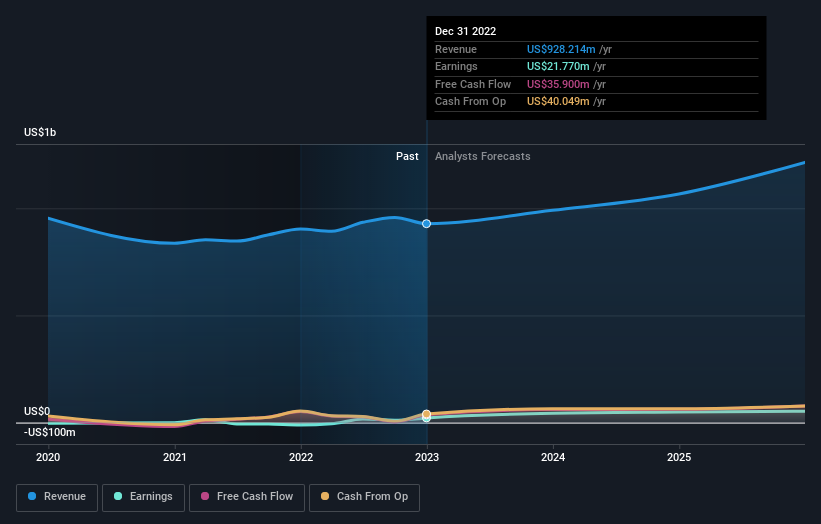Private equity firms account for 47% of Softchoice Corporation's (TSE:SFTC) ownership, while institutions account for 31%
Key Insights
The considerable ownership by private equity firms in Softchoice indicates that they collectively have a greater say in management and business strategy
61% of the business is held by the top 2 shareholders
If you want to know who really controls Softchoice Corporation (TSE:SFTC), then you'll have to look at the makeup of its share registry. And the group that holds the biggest piece of the pie are private equity firms with 47% ownership. Put another way, the group faces the maximum upside potential (or downside risk).
And institutions on the other hand have a 31% ownership in the company. Large companies usually have institutions as shareholders, and we usually see insiders owning shares in smaller companies.
In the chart below, we zoom in on the different ownership groups of Softchoice.
See our latest analysis for Softchoice
What Does The Institutional Ownership Tell Us About Softchoice?
Many institutions measure their performance against an index that approximates the local market. So they usually pay more attention to companies that are included in major indices.
Softchoice already has institutions on the share registry. Indeed, they own a respectable stake in the company. This suggests some credibility amongst professional investors. But we can't rely on that fact alone since institutions make bad investments sometimes, just like everyone does. If multiple institutions change their view on a stock at the same time, you could see the share price drop fast. It's therefore worth looking at Softchoice's earnings history below. Of course, the future is what really matters.
We note that hedge funds don't have a meaningful investment in Softchoice. Looking at our data, we can see that the largest shareholder is Birch Hill Equity Partners Management Inc. with 47% of shares outstanding. In comparison, the second and third largest shareholders hold about 14% and 3.2% of the stock.
A more detailed study of the shareholder registry showed us that 2 of the top shareholders have a considerable amount of ownership in the company, via their 61% stake.
Researching institutional ownership is a good way to gauge and filter a stock's expected performance. The same can be achieved by studying analyst sentiments. There are a reasonable number of analysts covering the stock, so it might be useful to find out their aggregate view on the future.
Insider Ownership Of Softchoice
The definition of an insider can differ slightly between different countries, but members of the board of directors always count. Company management run the business, but the CEO will answer to the board, even if he or she is a member of it.
I generally consider insider ownership to be a good thing. However, on some occasions it makes it more difficult for other shareholders to hold the board accountable for decisions.
Our most recent data indicates that insiders own some shares in Softchoice Corporation. As individuals, the insiders collectively own CA$36m worth of the CA$932m company. This shows at least some alignment. You can click here to see if those insiders have been buying or selling.
General Public Ownership
With a 18% ownership, the general public, mostly comprising of individual investors, have some degree of sway over Softchoice. While this size of ownership may not be enough to sway a policy decision in their favour, they can still make a collective impact on company policies.
Private Equity Ownership
With a stake of 47%, private equity firms could influence the Softchoice board. Some investors might be encouraged by this, since private equity are sometimes able to encourage strategies that help the market see the value in the company. Alternatively, those holders might be exiting the investment after taking it public.
Next Steps:
It's always worth thinking about the different groups who own shares in a company. But to understand Softchoice better, we need to consider many other factors. For instance, we've identified 2 warning signs for Softchoice that you should be aware of.
Ultimately the future is most important. You can access this free report on analyst forecasts for the company.
NB: Figures in this article are calculated using data from the last twelve months, which refer to the 12-month period ending on the last date of the month the financial statement is dated. This may not be consistent with full year annual report figures.
Have feedback on this article? Concerned about the content? Get in touch with us directly. Alternatively, email editorial-team (at) simplywallst.com.
This article by Simply Wall St is general in nature. We provide commentary based on historical data and analyst forecasts only using an unbiased methodology and our articles are not intended to be financial advice. It does not constitute a recommendation to buy or sell any stock, and does not take account of your objectives, or your financial situation. We aim to bring you long-term focused analysis driven by fundamental data. Note that our analysis may not factor in the latest price-sensitive company announcements or qualitative material. Simply Wall St has no position in any stocks mentioned.
Join A Paid User Research Session
You’ll receive a US$30 Amazon Gift card for 1 hour of your time while helping us build better investing tools for the individual investors like yourself. Sign up here



